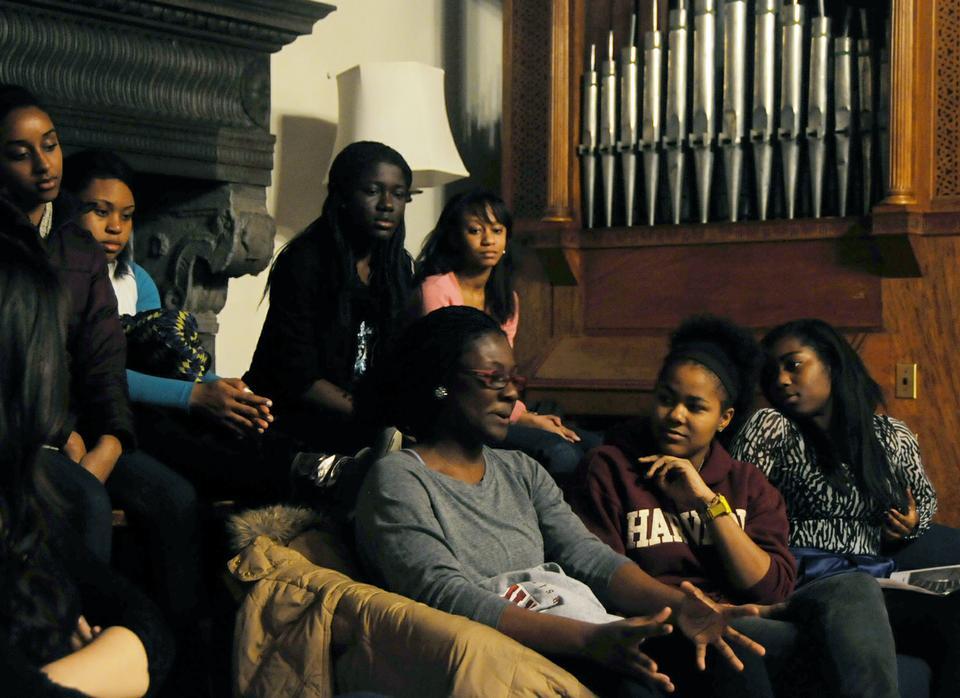
News
Garber Privately Tells Faculty That Harvard Must Rethink Messaging After GOP Victory

News
Cambridge Assistant City Manager to Lead Harvard’s Campus Planning

News
Despite Defunding Threats, Harvard President Praises Former Student Tapped by Trump to Lead NIH

News
Person Found Dead in Allston Apartment After Hours-Long Barricade

News
‘I Am Really Sorry’: Khurana Apologizes for International Student Winter Housing Denials
Women Tackle Beauty Standards

Marking the first day of Harvard Women’s Week 2011, a group of Harvard undergraduate women—and four men—from diverse backgrounds tackled false cultural perceptions of beauty at a gathering yesterday in the Adams Lower Common Room.
Hosted by the Harvard fashion group Styleta, the Association of Black Harvard Women, and Latinas Unidas, the conversation consisted of students discussing their own perceptions of beauty and inquiries into portrayals of beauty in the media and at Harvard.
Participants began by sharing their own perceptions of beauty before launching into the broader discussion.
One student presented her conception of beauty: “skinny, petite, long haired and white,” she said.
Participants posed a variety of questions that included why bleaching or tanning of skin is desirable for some people, as they sought to determine what actually serves to define beauty in American culture as well as in minority cultures, especially in African American and Latino communities.
Students expressed concern that lighter skin color is often portrayed as more attractive, saying light skin was a definitive characteristic of beauty in minority cultures.
Several Latina women related pressure they felt from their family to marry someone with a lighter skin tone.
“My grandmother thinks you’ll have better success in society if you have light skin,” said one Latina student.
Others expressed concerns with the impressionable effects of media portrayals of beauty.
“Sometimes I feel like people of the opposite sex expect me to be that way,” said Beverly E. Pozuelos ’12, president of Latinas Unidas and a Crimson editor.
Participants said that images of entertainers often inaccurately represent minorities.
“Most black actors, singers, entertainers are light-skinned,” said Ijeoma B. Eboh ’11, the event moderator and president of ABHW.
The discussion also tackled how perceptions of beauty at Harvard affect the participants, pointing out that a certain uniformity of clothing and accessory combinations can represent a particular level of socio-economic status.
One of the major take-aways from the conversation was that confidence is a universally attractive quality.
“Beauty comes from the inside, with confidence,” Erin D. Drake ’14 said.
Eboh said she hopes that the lessons of the discussion expand beyond the confines of the Adams LCR.
“I hope this conference shows that perceptions of beauty are something that can be changed,” Eboh said.
Drake said she would carry lessons from the event with her into the outside world.
“Everyone has insecurities about how they look,” she said. “At the end of the day, we are all beautiful.”
—Staff writer Mercer R. Cook can be reached at mcook@college.harvard.edu.
Want to keep up with breaking news? Subscribe to our email newsletter.
